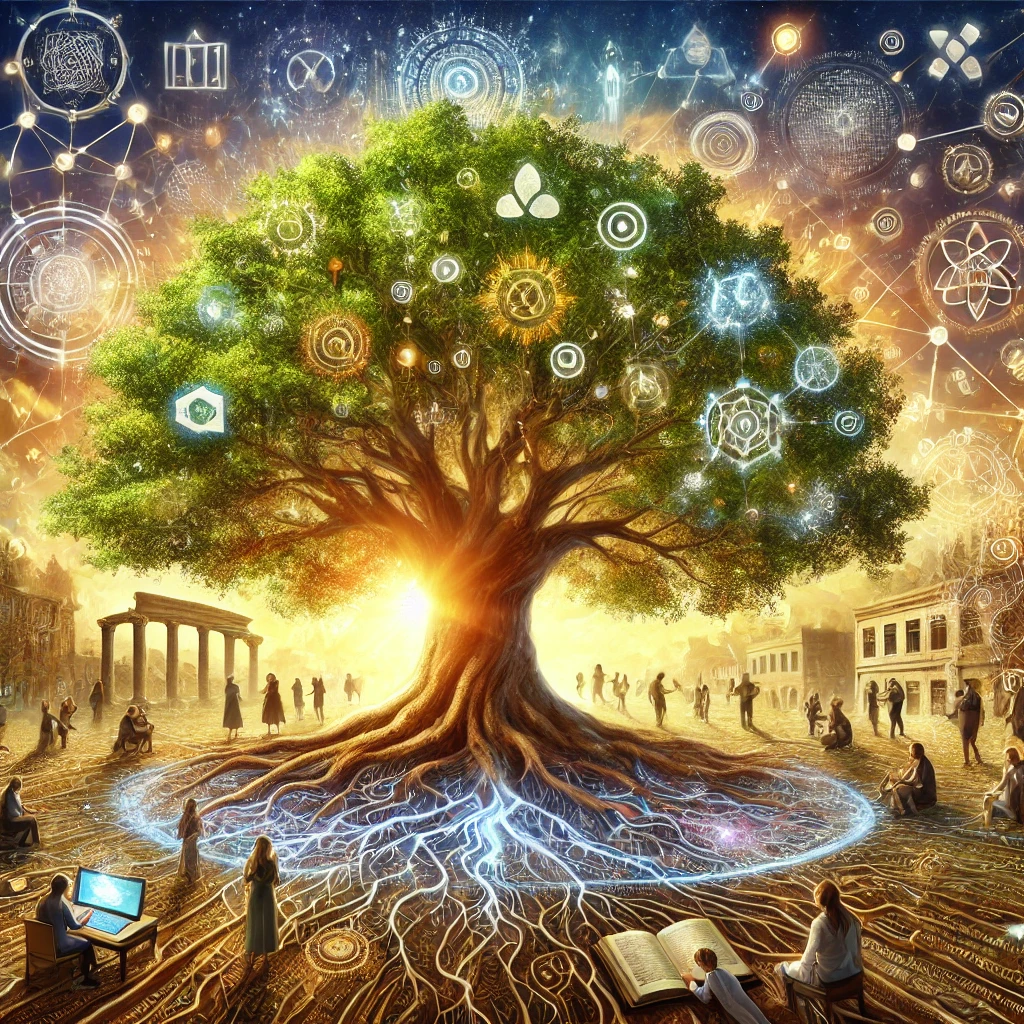Old Rules May No Longer Apply in the Current Wave of Change
by Laurie Howell

In the evolving landscape of today’s world, the concept of change is more relevant than ever.
Change management — the process of guiding individuals, teams, and organizations through a transition or transformation — has become a critical aspect of modern leadership.
As leaders, we’re supposed to have the answers, right? We’re expected to know exactly how change is affecting us now and how to understand the past to better prepare for the future. For leaders, the responsibility extends beyond simply having the answers — we must also articulate and share a perspective that resonates with others. This is where the role of thought leadership becomes crucial as it involves not just guiding decisions but also shaping the broader conversation. While the term “Thought Leadership” often connotes a focus on individual brilliance, it’s increasingly clear that true insight comes from collective wisdom — the thoughts of the hive. At our company, we believe in this collective approach, where diverse contributions drive credibility and foster a deeper understanding of the future.
The Nature of Change
Change is a constant — an undeniable truth of existence. Every generation believes that the changes they are witnessing are the most impactful of all time. But what does “our time” mean in the context of these changes? Are we referring to the 21st century, the past couple of decades, or perhaps even shorter, more immediate time frames? Regardless of the timeline, we are in an era of profound transformation, driven by factors both within and beyond our control.
The belief that history repeats itself is a comforting notion for many. It implies predictability and suggests that we can prepare for the future by studying the past. However, are the changes we face today so unprecedented that those waiting for history to cycle back might find themselves waiting in vain? This time, are we on a path so new, so fundamentally different, that the old patterns no longer apply?
The Forces of Modern Change
The forces driving change today are multifaceted and complex. Technological advancements, machine learning, and artificial intelligence are not merely tools; they are transforming the very fabric of society. The speed at which these technologies evolve is unprecedented, challenging our ability to adapt. Add to this mix the global challenges of climate change, pandemics, and geopolitical shifts, and the scale of change becomes almost overwhelming.
Historically, technological advancements have both uplifted and threatened societies. From the Industrial Revolution to the Digital Age, each leap forward has brought both opportunities and disruptions. The current wave of change feels different, more intense, perhaps even more perilous. The question is not whether we will adapt but how we will adapt. And, crucially, how we will manage the ethical, social, and economic implications of these changes.
Are We Destined to Repeat History?
The idea that history repeats itself is rooted in the observation of recurring patterns. Wars, economic cycles, social movements — they all seem to follow a predictable course. Yet, this predictability is more about human nature than about the external forces of change. Humans tend to react in familiar ways to similar stimuli, which creates the illusion of repetition. But what if the stimuli are entirely new? What if the changes we face now are unlike anything humanity has ever encountered?
In past eras, societies faced change at a pace that allowed for adaptation. Generations could pass before a new invention or idea took hold. Today, the pace of change is such that adaptation must be immediate. This immediacy challenges our ability to reflect, to understand the full implications of what is happening, and to prepare adequately for the future.
A Path of Enlightenment and Monumental Change
Are we on a new path of enlightenment and monumental change? It’s possible. The potential for positive transformation is immense. Technologies like AI and machine learning offer solutions to problems that have plagued humanity for centuries. They hold the promise of better healthcare, more efficient energy use, and solutions to global challenges that were once thought insurmountable.
Yet, with this promise comes peril. The same technologies that can solve our problems can also exacerbate them. They can deepen inequalities, disrupt economies, and threaten privacy and freedom. The path to enlightenment is not a straight one; it is fraught with dangers that must be navigated with care.
Conclusion: Shaping the Future
We are living through a time of revolutionizing change, a period where the old rules may no longer apply. As individuals and as a society, we must be vigilant, adaptable, and thoughtful. We must engage in conversations about the future, challenge our assumptions, and be willing to rethink the way we live and work. By planting seeds of thought and fostering a culture of continuous learning and adaptation, we can navigate the changes ahead.
The future is not set in stone. It is a landscape that we are shaping with every decision, every innovation, and every action. By embracing change, we can steer it towards a future that is not only different but better. A future where the lessons of the past inform but do not constrain the possibilities of tomorrow.
________________
Contact us today at https://austinpeopleworks.com/contact and discover how we can support your HR needs and your company’s journey to success.
